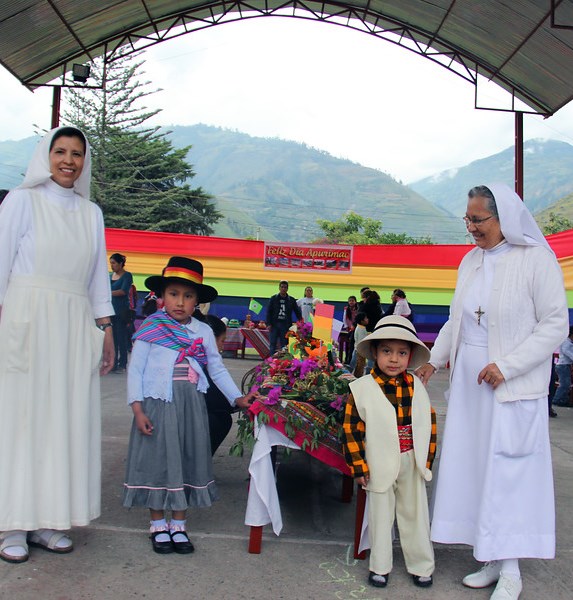|
Poverty, priest shortages, Christian hope form backdrop for Pope's Latin American journey
Thursday, July 9, 2015
In 2014, Aid to the Church in Need listed Ecuador as a country "of concern," given these signs of the deterioration of religious freedom.
By Antonia von Alten
NEW
YORK—Pope Francis’ visit to Latin America July 5-13, 2015 affords the Pontiff
a unique opportunity to carry his signature message of concern for the poor and
wariness of capitalism to his home turf.
With
stops in Ecuador, Bolivia and Paraguay, the Pope continues to reach out to what
he refers to as the “victims of this throwaway culture”—especially “the elderly, the sick, the imprisoned, [and] the poor.”
Ecuador
is the smallest of the three countries. About 20 percent of the citizenry of
almost 3 million live and work abroad, mostly in the US, Spain and Italy.
Foreign currency earnings are key to the economy, but family life is often
disrupted, as wives live apart from their husbands, and children don’t live
with their parents. Then there is the influx of migrants into the country, many
of whom live in squalid conditions in slums surrounding the larger cities. The
local Church does its utmost to provide them with pastoral care.
The
relationship between Church and state in Ecuador is tense. Three years ago, the
health ministry ordered all religious images removed from a number of regional
hospitals. In addition, a number of priests were dismissed from hospital
positions. In 2014, Aid to the Church in Need listed Ecuador as a country “of
concern,” given these signs of the deterioration of religious freedom.
In
Bolivia, the Pope’s meetings with priests, men and women religious, as well as
seminarians will be an important boost for the local Church. Among those
working with the very poor are Sisters of St. Vincent de Paul, who minister to
migrants in the west of the country. Their work and that of other men and women
religious allow the Bolivian Church to operate many more parishes than it could
on its own power, given the shortage of indigenous priests. Aid to the Church in Need has pledged $100,000
to the sisters, funds earmarked for the construction of a house for migrants.

The
third country the Pope will visit is Paraguay, where 90 percent of the population
of 7 million inhabitants are baptized Catholics. Pope Francis has a special relationship with Paraguay. During his years as the archbishop of Buenos
Aires, the Argentine capital, he worked closely with Paraguyan migrant workers.
Priests are held in high esteem in Paraguayan society; today, some 300 men are
preparing for the priesthood. Once ordained, they will bring relief to a Church
also suffering from a shortage of priests, given the country’s huge parishes,
which are often divided up into smaller so-called sub-parishes.
According
to a study by the Economic Commission for Latin America and the Caribbean,
every second inhabitant of Paraguay lives in poverty, and one-third has to cope
with extreme poverty. The Catholic Church is fighting poverty, in part through its
educational facilities, providing general education for the laity as well as
theological and pastoral formation for laity working for the Church.
In 2014, Aid
to the Church in Need supported the work of the Catholic Church in these
three countries with more than $1.2M. More than 300 priests in Ecuador, Bolivia
und Paraguay receive support through Mass intentions; in Bolivia, the
organization also supports the training of catechists and seminarians, funds
construction projects and provides subsistence aid to sisters. In Ecuador, Aid to the Church in Need in particular
helps the Church minister to migrants.
Sisters working with children in Bolivia; ACN photo
|
|
|